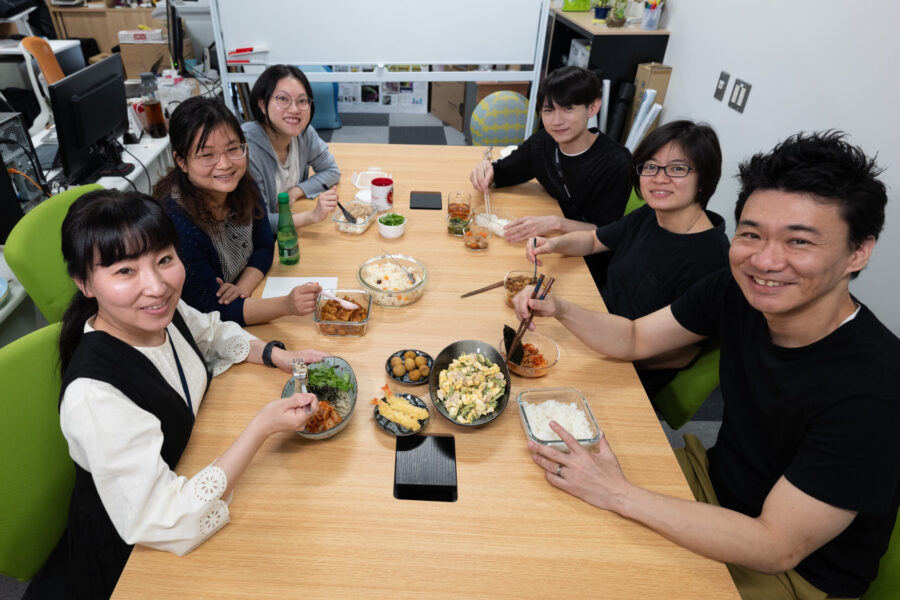Human Biomimetic System RIKEN Hakubi Research Team
This time we hear from RIKEN Hakubi Team Leader Masaya Hagiwara, who leads the Human Biomimetic System RIKEN Hakubi Research Team that joined the RIKEN BDR in April 2023, about his laboratory.
Before establishing your laboratory at RIKEN, where and what kind of research were you doing?
I have always preferred tinkering with mechanical things over biology. With my background in mechanical engineering, I have worked for an automotive company making transmissions and during my doctoral studies, I was working on developing microrobots. Even during my postdoc at UCLA where I was developing microfluidic chips based on new principles, my research was more often dealing with man-made objects. Later, I realized there were many interesting things that could be discovered by applying such manufacturing techniques to cell culture, and I established an independent laboratory at the Osaka Prefectural University (now Osaka Metropolitan University). There, I carried out research to try clarifying fundamental cellular principles by using microfabrication techniques to build a spatial platform that allows cells to recapitulate their behavior in a highly reproducible manner. I had not done much cell culture work up until then so I made a lot of mistakes. But I believe that I was able to come up with unique ideas and technologies because I forged ahead in the direction that I thought would be interesting, without being influenced by anyone and without knowledge of conventional methods.
What kind of research are you aiming to conduct at RIKEN?
I am aiming to establish technologies for generating organs from cells in vitro. Current cell culturing techniques are based on pipette manipulation, with organs being formed by placing cells in a simple environment and allowing the cells’ self-organization processes unfold. But within the actual body, they always develop into the same shape despite the complex interplay of various factors in their surroundings. My major goal is to establish technology that can recapitulate the complex developmental environment needed for organogenesis and control the process of organ formation from cells. For example, just as there are various methods of construction to build a house depending on the environment or purpose of use, I would like to establish a spatial platform adapted to designing and generating each organ, which will be able to successfully guide cells to take on their intended form and function within the organ.
What is the composition of your lab members like?
Many of the members who have joined my lab are from Southeast Asian countries such as Malaysia, Thailand, Vietnam and Myanmar. It’s only recently that a Japanese person has joined the lab. In the lab, we all generally communicate in English, and at lunch, you will spot a variety of different lunch boxes that each person has made. We have people with different backgrounds in engineering and those with backgrounds in biology in the lab, and we work together to advance our research by covering each other’s shortcomings.
Please tell us something unique to your laboratory.
One of our major strengths is that we can propose new approaches for cell culturing experiments based on manufacturing ideas unique to engineering without being bound by conventional thinking. For experiments, we can create what we don’t have, which allows us to be flexible to try out and give shape to new ideas. However, we don’t want to create what may be an amazing engineering technology, but that is in fact difficult to use or apply. So we try to keep in mind what is ultimately being sought when creating something new.
What are you hooked on lately?
Riding my bike. The night view from the Kobe Bridge is beautiful.
My bible on life: Shinya Tokkyu (The Midnight Express), written by Kotaro Sawaki.
What surprised you when you came to Kobe?
All restaurants in Kobe are generally delicious.
What type of people do you want joining your lab?
Someone with a lot of passion. Before finding out whether or not someone is good at what they are doing, I think that people who believe what they are doing is interesting are more enjoyable to talk to, and their enthusiasm for what they are doing will become contagious. Perhaps it’s my experience of diving into different fields that I knew little about leads me to be more interested in learning about why someone wants to do something rather than how well they can do something.
